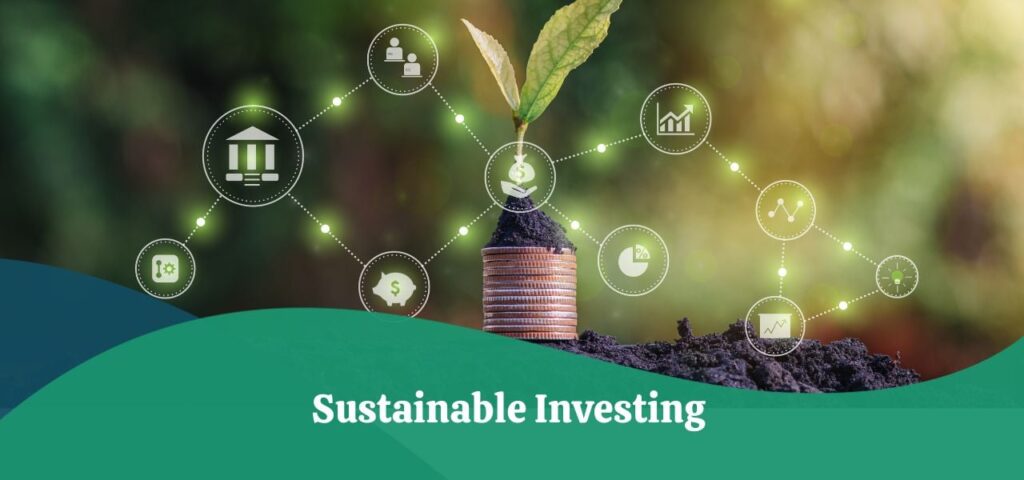Introduction
Sustainable investing, also called ESG (Environmental, Social, and Governance) investing, is no longer just a buzzword—it’s a mainstream approach to building a profitable portfolio that aligns with ethical values. Growing concerns about climate change, social justice, and corporate responsibility are shaping investor preferences worldwide. In 2025, sustainable investments offer solid financialreturns while contributing to a healthier planet and fairer society.
Why Sustainable Investing Matters Today
- Global warming and environmental degradation keep escalating, urging investors to support companies reducing their carbon footprint.
- Social movements highlight labor rights, workplace equality, and community impact, influencing corporate behavior.
- Governance issues, including transparency, board diversity, and ethics, have been linked to financialperformance and risk mitigation.
- A rising number of millennials and Gen Z investors prioritize sustainability when choosing investments.
- Regulatory frameworks tightening worldwide encourage corporate disclosure of ESG data.
Understanding ESG Metrics
- Environmental: Carbon emissions, energy efficiency, waste management, water usage.
- Social: Employee relations, community impact, human rights, diversity and inclusion.
- Governance: Board composition, executive pay, ethics policies, shareholder rights.
Types of Sustainable Investment Options
- ESG Funds: Mutual funds and ETFs screening companies based on ESG criteria.
- Green Bonds: Fixed-income securities whose proceeds fund environmentally friendly projects.
- Impact Investing: Targeting measurable social/environmental impact alongside financial return.
- Direct Investments: Supporting startups or companies focused on clean energy, sustainable agriculture, or social housing.
How to Assess ESG Metrics—Tools and Scores
- MSCI ESG Ratings
- Sustainalytics Score
- Bloomberg ESG Data Service
- Refinitiv ESG Scores
These platforms use proprietary methodologies analyzing company disclosures, controversies, and third-party data.
Case Studies: Profitable and Responsible Investments
- Tesla: Leading electric vehicle maker with rapid growth, though controversial governance.
- NextEra Energy: Largest producer of wind and solar energy in the US, consistent dividends.
- Unilever: Strong commitment to sustainability with multiple product lines focused on social impact.
- Beyond Meat: Innovator in plant-based protein—tackling climate change via food production.
How to Get Started in Sustainable Investing
- Start with ESG index funds or ETFs to diversify risk.
- Check the fund’s ESG methodology and holdings.
- Consider impactinvesting funds for direct social benefits.
- Stay informed about greenwashing risks—verify claims with third-party data.
Sustainable Investing Explained: ESG Strategies for Ethical Profits
- ESG data inconsistency and reporting gaps
- Potential greenwashing by companies aiming to look ethical without substance
- Lower liquidity or narrower markets for some sustainable sectors
- Regulatory changes affecting ESG standards
Sustainable Investing Trends in 2025 and Beyond
- Increased integration of artificial intelligence in ESG analytics.
- Rise of climate-focused fintech platforms and apps.
- Emergence of social impact bonds and more standardized reporting frameworks.
Tools and Resources for Sustainable Investors
- Morningstar Sustainability Rating
- OpenInvest and Swell Investing platforms
- Financial blogs and podcasts focused on ESG updates
- Annual sustainability reports of companies
Actionable Tips for Ethical Profit
- Align your portfolio with your values without sacrificing diversification.
- Monitor the evolution of ESG criteria and standards.
- Engage shareholders in activism or voting.
- Support transparency by favoring companies with robust ESG disclosures.
FAQs
What is sustainable investing?
Sustainable investing is an approach where you invest your money in companies or funds that not only aim for financial profit but also work toward positive environmental, social, and ethical outcomes. Instead of focusing purely on returns, sustainable investingencourages you to support businesses that protect the planet, treat communities fairly, and follow responsible governance practices.
How is sustainable investing different from regular investing?
While traditional investing mainly focuses on financial performance, sustainable investing adds an extra layer of responsibility. It evaluates companies based on how they manage environmental impact, employee welfare, ethical practices, and transparency in management. This means you are not just investing for financial growth but also for long-term social and environmental improvement.
Why do people choose sustainable investing?
Many people prefer sustainable investing because it aligns their financial decisions with their personal values. Investors often feel more confident supporting companies that work toward clean energy, fair treatment of workers, or ethical business operations. In addition to this emotional satisfaction, companies with strong environmental and ethical practices tend to be more stable and better prepared for future challenges, which can sometimes lead to strong long-term financial performance.
Can sustainable investing be profitable?
Yes, sustainable investing can be profitable. Many ESG-focused funds and companies have shown returns that match or even exceed traditional investments. However, like any investment, profitability depends on market conditions and long-term commitment. Sustainable investing is often most effective when approached with a long-range perspective rather than expecting quick gains.
What are the common approaches used in sustainable investing?
Sustainable investing uses different strategies to help investors choose responsible companies. One approach focuses on avoiding industries that harm society or the environment, such as tobacco, fossil fuels, or unethical labor practices. Another method involves selecting companies based on their environmental, social, and governance (ESG) performance. A more advanced approach, known as impact investing, targets businesses that create measurable positive outcomes, such as renewable energy projects or social development programs.
How can I start with sustainable investing?
To begin your sustainable investing journey, start by identifying the causes and values that matter most to you, such as climate protection, social equality, or ethical business standards. Once you are clear about your priorities, research companies, mutual funds, or ETFs that demonstrate strong ESG performance. It is important to analyze both the sustainability score and the financial track record of your chosen investments. You can start with a small portion of your portfolio and gradually expand as you become more comfortable.
What challenges or risks should I be aware of?
One of the main challenges in sustainable investing is the inconsistency in how companies are rated for their environmental or ethical performance. Different agencies use different criteria, which can make comparisons confusing. Another issue is “greenwashing,” where companies claim to be more sustainable than they actually are. Additionally, some sustainable investmentsmay show slower short-term growth but tend to provide stability and resilience over the long run.
Conclusion
Sustainable investing allows you to invest with purpose and profit, making a positive impact in 2025 and beyond. By understanding ESG metrics, using reliable tools, and selecting ethically sound companies or funds, you can build a strong, future-ready portfolio.










